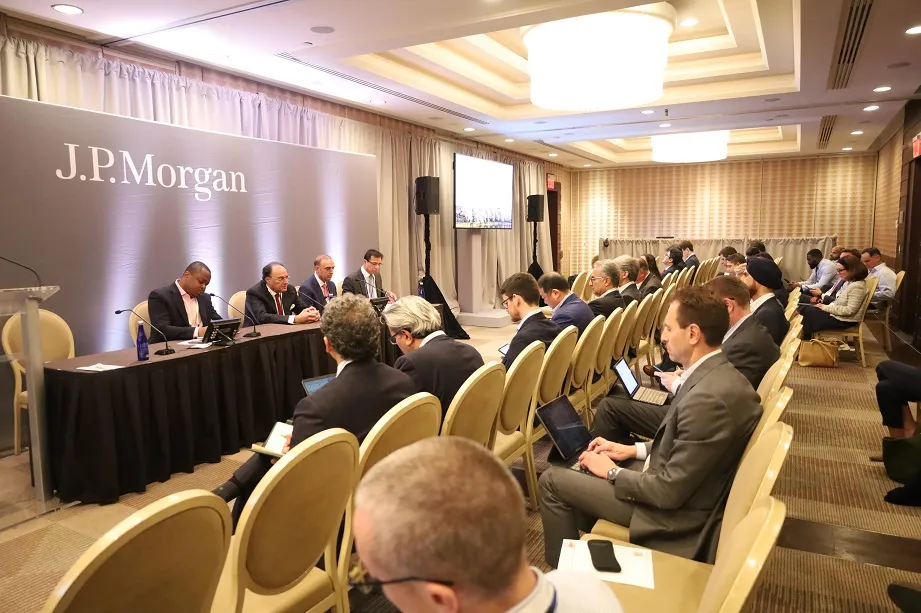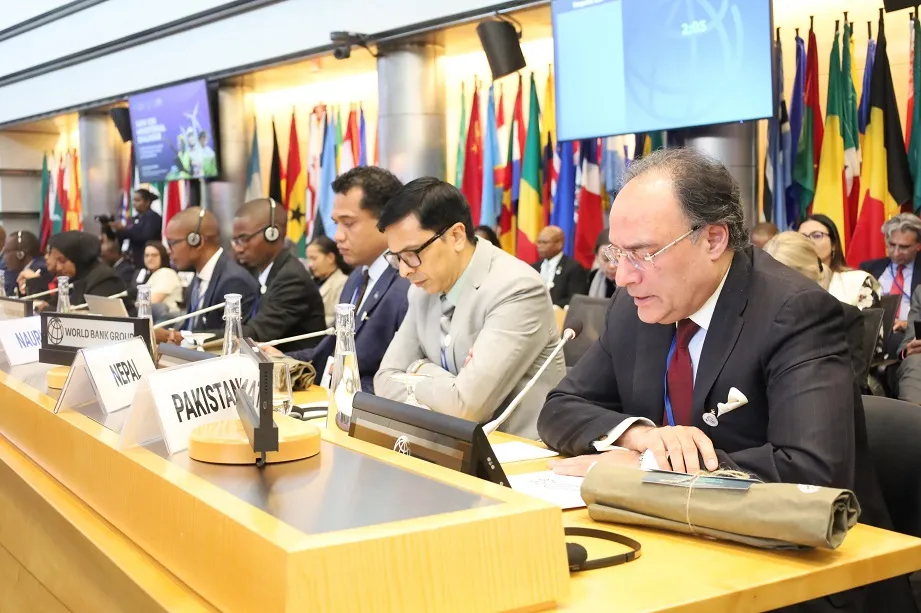Islamabad: Pakistan’s Finance Minister, Muhammad Aurangzeb, highlighted the country’s improved macroeconomic outlook during his visit to Washington for the 2025 Spring Meetings of the International Monetary Fund (IMF) and the World Bank.
The meetings gathered finance ministers and central bank governors from across the globe to discuss pressing issues such as sovereign debt, climate finance, and the reform of the international financial system.
During his visit, Aurangzeb held meetings with various key stakeholders, including financial institutions, rating agencies, and global corporations, to foster stronger economic ties and promote Pakistan’s economic progress.
In one such engagement, he met Andrew Torre, Visa’s regional vice president, and commended the company’s efforts toward Pakistan’s digitalization.
Visa’s expansion plans, including tripling the size of its offices and its collaborations with PayPak and 1-Link, were seen as significant for financial inclusion, e-commerce, and remittance facilitation in Pakistan.
Aurangzeb assured Visa’s regional head of the government’s support in addressing any operational challenges in the country.
JP Morgan
He also met with executives from Phillip Morris International, highlighting the importance of compliance measures to combat illicit cigarette production and sales.
Additionally, during a seminar hosted by JP Morgan, Aurangzeb briefed institutional investors on Pakistan’s stable macroeconomic indicators, such as twin surpluses, declining inflation, and healthy foreign exchange reserves, which contributed to a recent credit rating upgrade by Fitch.
In a separate meeting with Masato Kanda, president of the Asian Development Bank (ADB), Aurangzeb appreciated the ADB’s continued support for Pakistan’s development, especially through the Country Partnership Strategy 2026-2030.

He also discussed accelerating project execution and requested support for issuing Panda bonds.
Aurangzeb also held important discussions with major international credit rating agencies, including Fitch and Moody’s.
He thanked Fitch for upgrading Pakistan’s sovereign credit rating to B- and emphasized the country’s progress in key structural reforms, particularly in energy, taxation, and public finance management.
With Moody’s, he highlighted Pakistan’s strong economic indicators, including low inflation, fiscal surpluses, and record remittances, while stressing the need for broadening the tax base.
The finance minister’s engagements extended to institutions such as the World Bank and the IMF.
He met with Sangbu Kim, World Bank’s vice president for digital transformation, to discuss Pakistan’s Digital Pakistan policy and the digitization of tax reforms.
Read More: Aurangzeb Set to Visit US for IMF, World Bank Meetings
Aurangzeb also emphasized Pakistan’s commitment to climate resilience, noting its successful staff-level agreement with the IMF under the Resilience and Sustainability Facility (RSF).
Meetings With IMF, World Bank
In meetings with Jihad Azour, IMF Director for the Middle East and Central Asia, and other bank officials, Aurangzeb reaffirmed Pakistan’s commitment to its economic reforms, particularly under the IMF’s Extended Fund Facility and RSF.
He also discussed the importance of international financial reforms to support climate-vulnerable nations and the need for capacity-building to develop sustainable climate projects.
Concluding his trip, Aurangzeb met with Standard Chartered Bank’s delegation, led by Roberto Hoornweg, and expressed gratitude for the bank’s support in bridging Pakistan’s financing gap during challenging times.
Also Read: IMF Reduces Pakistan GDP Growth Projection to 2.6%
These high-level discussions underscored Pakistan’s growing economic stability and its strategic partnerships with global financial institutions aimed at securing sustainable economic growth.









